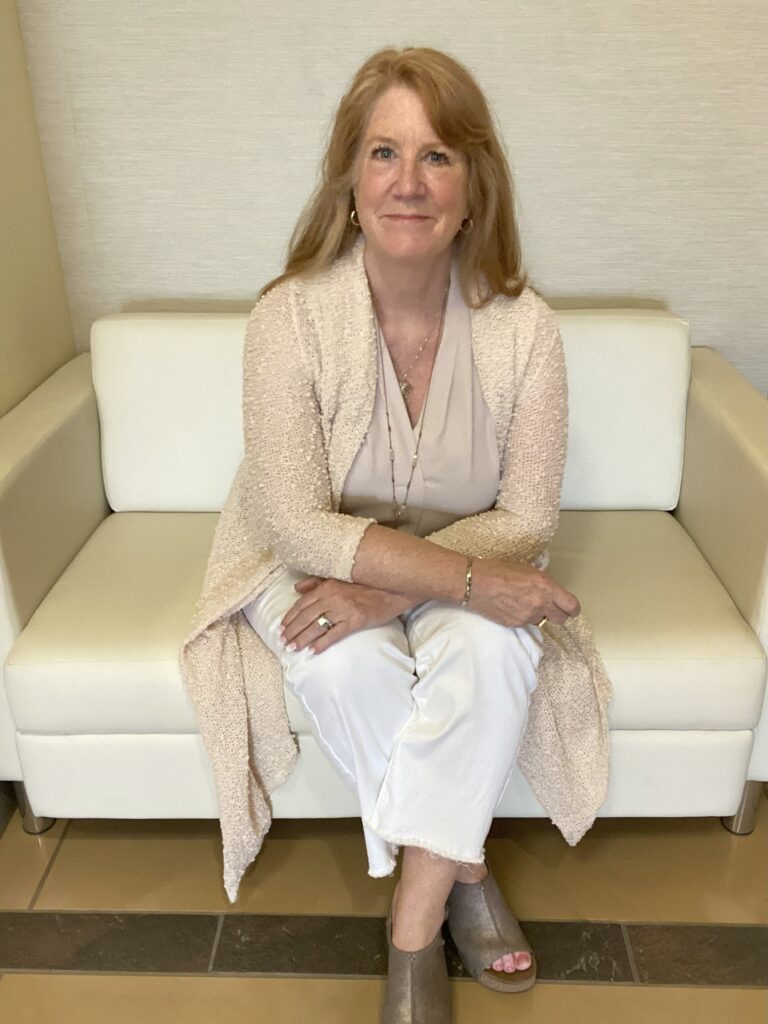The Courage to Change
The Courage to Change: Why Transformation Feels Scary Even When You Want It

Change is one of life’s most fascinating paradoxes. We desperately want to grow, evolve, and become better versions of ourselves, yet when transformation opportunities present themselves, we often find ourselves paralyzed by fear. If you’ve ever felt excited about a new direction in your life only to feel overwhelmed by anxiety the next moment, you’re experiencing something completely normal and deeply human.
As a Licensed Clinical Social Worker and Certified Life Coach with 18 years of experience supporting adults and teens through life transitions, I’ve witnessed this phenomenon countless times. The courage to change isn’t about eliminating fear—it’s about understanding why transformation feels scary and learning to move forward despite that fear.
Why Our Brains Resist Change
Your brain’s primary job is to keep you alive and safe. From an evolutionary perspective, the familiar equals safety, even when the familiar isn’t serving you well. When you consider making significant changes—whether it’s pursuing a new career, ending a relationship, or developing healthier habits—your brain interprets this as potential danger.


This neurological response triggers what psychologists call the “negativity bias,” where your mind focuses more intensely on potential risks than benefits. Your brain essentially asks: “What if this doesn’t work out? What if I fail? What if I lose what I currently have?” These aren’t signs of weakness; they’re signs of a normally functioning protective system.
The uncertainty that accompanies change also activates your stress response. Research shows that uncertainty registers in the brain similarly to physical pain, which explains why even positive changes—like getting promoted or moving to your dream city—can feel overwhelming.
The Identity Challenge of Transformation
Beyond the brain’s protective mechanisms, change challenges something even deeper: your sense of identity. Who you are today is built on years of experiences, beliefs, and patterns. When you decide to change, you’re essentially saying goodbye to a version of yourself you’ve known for years.
This identity shift can feel like a loss, even when you’re moving toward something better. You might find yourself mourning the person you’re leaving behind or feeling uncertain about who you’re becoming. This grieving process is a normal part of healthy transformation and shouldn’t be rushed or dismissed.
Through my work in life coaching and anxiety management,


I’ve identified several recurring fears that prevent people from embracing change:
·Fear of failure often tops the list, but equally paralyzing is the fear of success. Success brings new responsibilities, expectations, and potentially unfamiliar social dynamics. Some clients worry about outgrowing relationships or feeling isolated in their achievements.
- ·Fear of judgment from others can be particularly strong for teens and young adults who are still developing their sense of self. The question “What will people think?” can become more important than “What do I truly want?”
- Fear of the unknown represents perhaps the most universal obstacle. Even when your current situation isn’t ideal, it’s predictable. Change introduces variables you can’t control, and this unpredictability can
Building Your Transformation Toolkit
The good news is that courage isn’t something you either have or don’t have—it’s a skill you can develop. Here are evidence-based strategies I use with clients to navigate change more confidently:
Start with small, manageable steps. Transformation doesn’t require dramatic overnight changes. Begin with micro-adjustments that feel challenging but not overwhelming. If you want to change careers, start by exploring options for 15 minutes daily rather than immediately quitting your job.



Develop a support system before you need it. Identify people who believe in your growth and can offer encouragement during difficult moments. This might include friends, family members, mentors, or a professional coach who specializes in life transitions.
Practice self-compassion throughout the process. Change rarely follows a straight line, and setbacks are part of the journey. Treat yourself with the same kindness you’d offer a good friend facing similar challenges. Research shows that self-compassionate people are more resilient during life transitions and better able to learn from mistakes.
Create safety nets where possible. Having backup plans doesn’t mean you lack faith in your goals; it means you’re being strategic about managing risk. Financial savings, maintaining certain relationships, or keeping doors open can provide emotional security during times of transition.
Reframing Fear as Information
Melissa Garvey is a Licensed Clinical Social Worker and Certified Life Coach with 18 years of experience supporting adults and teens through personal development and life transitions. Through Melissa Garvey Coaching – Adult & Teen Development Coaching, she provides specialized support for career development, leadership, confidence building, and anxiety management. Services are available in-person, through HIPAA-compliant video platforms, and via concierge services for added convenience and discretion.
Ask yourself: “What is this fear trying to protect?” Sometimes fear protects you from genuine risks that deserve attention. Other times, it’s protecting you from imaginary dangers that are unlikely to occur. Learning to distinguish between these types of fear is crucial for making wise decisions about change.

The Role of Professional Support

While some changes you can navigate independently, others benefit from professional guidance. As someone who provides both clinical social work and life coaching services, I’ve seen how the right support can accelerate transformation while reducing unnecessary suffering.
Life coaching is particularly effective for stable individuals ready to create positive changes in areas like career development, leadership skills, confidence building, and personal development. For those dealing with anxiety around change, specialized approaches like my “Anxiety Whisperer” program can provide targeted strategies for managing fear while pursuing growth.
Professional support isn’t about dependency—it’s about having an experienced guide who can help you navigate challenges more efficiently and avoid common pitfalls.
Taking the First Step

The courage to change begins with acknowledging that transformation is both desirable and frightening. This isn’t a contradiction to resolve; it’s a reality to accept. You can want something deeply and still feel scared about pursuing it.
Your next step doesn’t need to be dramatic. It simply needs to be authentic to where you are right now. Whether that’s researching new possibilities, having an honest conversation with someone you trust, or scheduling a consultation with a coach, forward movement in any direction builds momentum.
Remember, the goal isn’t to eliminate fear—it’s to develop the confidence to move forward despite fear. Every person who has ever transformed their life has felt the same uncertainty you’re experiencing now. The difference isn’t in their absence of fear, but in their willingness to act in spite of it.
Change is scary because it matters. Your dreams deserve your courage, and you deserve a life that reflects your authentic potential. The transformation you’re considering isn’t just about changing your circumstances—it’s about honoring who you’re meant to become.
Melissa Garvey is a Licensed Clinical Social Worker and Certified Life Coach with 18 years of experience supporting adults and teens through personal development and life transitions. Through Melissa Garvey Coaching – Adult & Teen Development Coaching, she provides specialized support for career development, leadership, confidence building, and anxiety management. Services are available in-person, through HIPAA-compliant video platforms, and via concierge services for added convenience and discretion.
Meet Melissa: Your Transformation Partner

I help adults and teens discover the calm confidence that makes everything else possible.
If you’re here, you’re likely someone who achieves a lot but still struggles with that inner voice that second-guesses, overthinks, or worries about what’s next. Whether you’re a professional woman ready to optimize how you operate, or a parent seeking support for your teen, you’ve found someone who understands both the external pressures and internal struggles that come with caring deeply about your life and impact.




